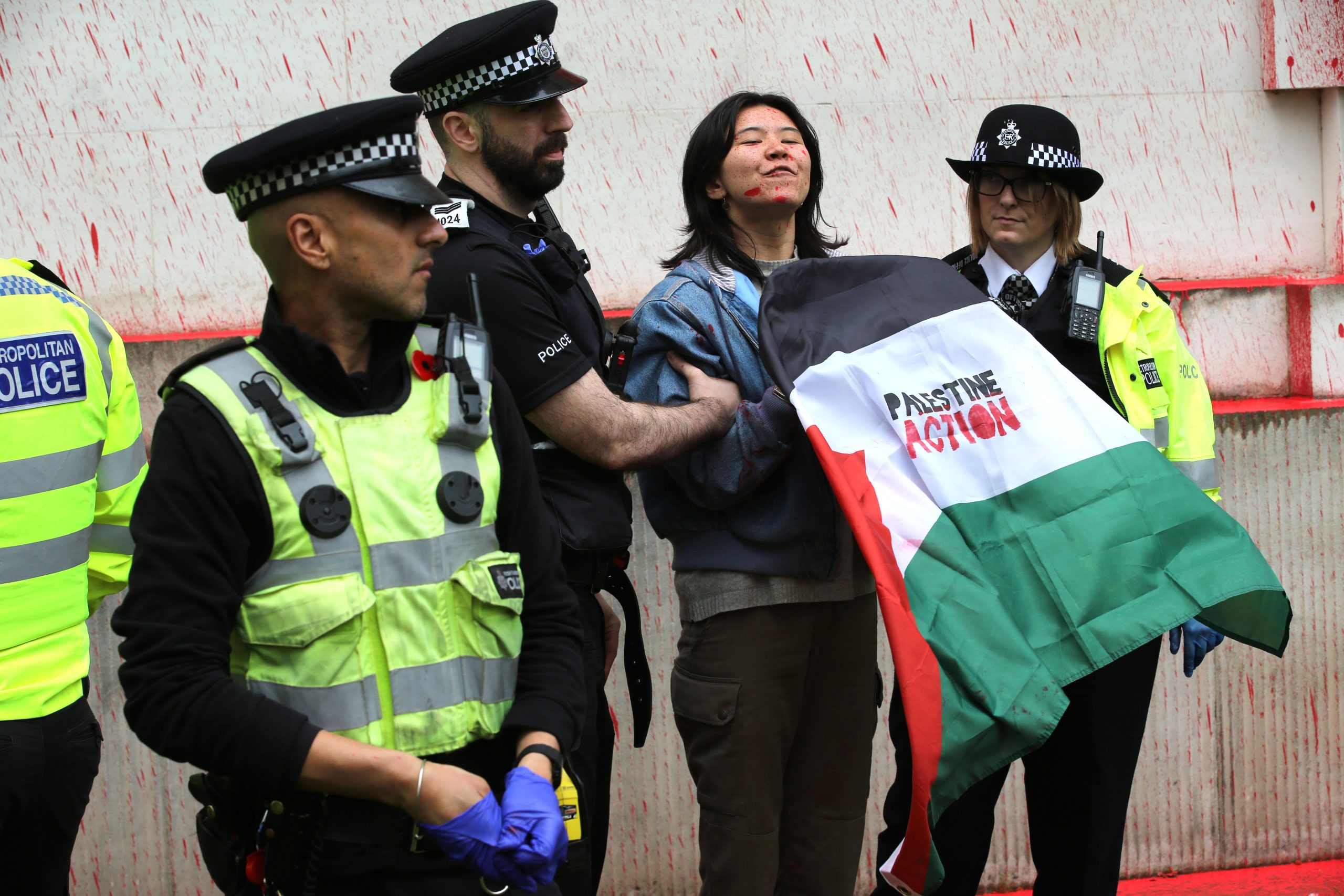A guest writer for Freedom takes a look at the current Care UK strike and asks the question: why is it important, and what can anarchists do to help?
Care UK workers in Doncaster, having already been on strike for 48 days, have just begun another three weeks’ worth of strike action, from 7am at Monday 25th August to Monday 15th September. A dispute of this length and intensity is almost unheard of in the context of present-day UK trade unionism, and so it’s worth taking a closer look at what’s going on, and what we can do to help
Services for people with learning disabilities in Doncaster, previously provided by the NHS, were flogged off to private provider Care UK earlier this year. As part of this process, care workers were told to accept a 35% pay cut, and new workers were brought in on £7 an hour. They responded by striking, demanding that the wages of the lowest-paid staff be brought up to a living wage of £7.65, and that more experienced staff should also be given a basic wage rise to keep them in line with NHS conditions. Care UK bosses have been unwilling to give ground, and so the workers have made a determined stand: they first voted to strike in February, and they’re still fighting on today after having lost nearly 50 days’ pay so far, in one of the longest-running strikes in the history of the healthcare sector.
Why does it matter? First of all, because of the basic principles of solidarity. It may be a cliché, but it’s true: an injury to one really is an injury to all, and just as importantly, if one group of workers can win real concessions from their employers through sustained, dedicated strike action, then that’s a victory for all of us.
At the moment, the idea of collective direct action has not been discredited so much as completely forgotten – most workers in the UK have no memories of taking on the bosses and winning, especially not in a struggle as intense as the one being fought at Care UK. At best they’ve been ordered out for a one-day strike or two as part of a top-down union campaign that ended with a deal being negotiated over their heads; and for those of us working in the many workplaces that are completely unorganised, even this seems like an unrealistic dream. A victory for the Care UK strikers won’t magically reverse the demoralising effects of decades of defeats overnight; but the more concrete examples of success we can point to, the more convincing we’ll sound when trying to convince our workmates to organise and take action with us.
As well as being important for workers in general, it’s also the case that the Care UK dispute has the potential to serve as an especially important example for care workers in particular. Speaking solely from personal experience, it seems like care and support work is an occupation that disproportionately large amounts of anarchists and other radicals work in, which would seem to make it a promising field for industrial networking. While some union organisation remains in the NHS, an ever-growing amount of care work has been farmed out to an array of private contractors, and no tradition of workplace organisation exists in these new workplaces. Success for the Care UK dispute would be a massive boost for workers attempting to organise in the increasingly privatised care sector.
What can we do about it? So far, the two largest Trot groups have been very active in publicising and covering the dispute, as well as providing financial support, whereas libertarians seem to have very little active involvement in organising solidarity so far. A lot of this might well be down to geography – certainly, I can’t imagine a strike in London lasting over 50 days and attracting this little attention from anarchists, and it’d be unlikely to go unnoticed if it was happening in Manchester either. Be that as it may, there are still a number of ways you can help support the dispute, no matter how far from Doncaster you live:
- Fundraising: Street collections help to raise awareness of the dispute at the same time as raising money; they’re a space to start conversations about the importance of solidarity. You could also consider more ambitious fundraising events – why not put on a strike solidarity fundraising gig? How about a clubnight? What if you just held a big house party, invited all your mates and let them know in advance that there’d be a collection for the dispute and you’d appreciate them chipping in a few quid?
- Publicising the dispute: There’s a few things you could do here (beyond the basic things like liking the strikers’ facebook page, sharing updates and so on). You could hold a meeting about the strike in your area and invite a striking worker to speak at it – this could be particularly useful as a way of pulling care workers together, and hopefully starting conversations about how care workers where you live can start organising towards a similar level of strength. If Care UK or Bridgepoint have offices near where you live it might be worth leafleting them to try and start conversations about the disputes there – nothing would scare the Care UK bosses more than the prospect of the dispute spreading to other areas. Again, don’t be shy to contact the strikers for advice, they might have some good tips about what would be the most useful thing to do. There have been calls for protests outside Bridgepoint-owned shops, this might just be activist busywork in a lot of cases , but if well co-ordinated and part of a coherent strategy for escalation they could be worthwhile. (Having to go through the official branch structures to make contact rather than just talking directly to rank-and-file workers isn’t ideal, but the only way you’ll make contact with ordinary strikers is through activity. The difficulty of making direct contact without going through union structures is a problem that needs to be solved in practice, it shouldn’t be an excuse for not doing anything.)
Be imaginative: are there any places in your area where you’re likely to find large concentrations of care or support workers other than their immediate workplaces? Are there any integrated/learning difficulty-inclusive places where you’re likely to find large numbers of carers with their clients?
For those of us who want to see working-class struggles push beyond the bounds of trade unionism, a lot of the time it’s tempting to put our criticisms of the unions in fairly simple terms: in short, they’re rubbish and they never do anything. This is, broadly, true enough: most of the time, in most places, the unions are rubbish and they never do anything. But it’s an argument that wouldn’t work particularly well when applied to Doncaster Unison Health branch, and if this dispute is successful and inspires others then we may well see other union branches acting in ways we’re not used to.
There are lots of radical criticisms of trade unionism that still hold as true for militant, fighting unions they do for the most useless, yellow staff associations: as long as there’s a layer of professional representatives then they put power in the hands of a separate group with interests separate to the workers they represent, as long as they organise along trade rather than class lines they divide workers up even as they bring them together, as long as they recognise the legitimacy of capitalism and the state then they’ll always need to be accepted by the bosses they seek to bargain with, and so will have to prove themselves to be reliable bargaining partners by clamping down on any actions outside their control, and so on. All these points are true, and important, and worth making; but arguing them convincingly will take a bit more effort than just saying “the unions are crap because they never do anything”. If we don’t just want to be passive supporters of union campaigns, but instead to play an active role in arguing for forms of workers’ organisation that can go beyond the limits of trade unionism, then we need to be sure we’re making arguments that can address the reality of unions at their best, not just at their worst.
Contact details:
The facebook page for the strike is at https://www.facebook.com/pages/Doncaster-Supported-Living-Unison-Strike/1465854936976109
The branch can be contacted at admin@unison-dab.org.uk or 01302 366084
Cheques should be made payable to Doncaster, District and Bassetlaw Health Branch 20511, and send them to the UNISON Office, Jenkinson House, White Rose Way, Doncaster DN4 5GJ.








